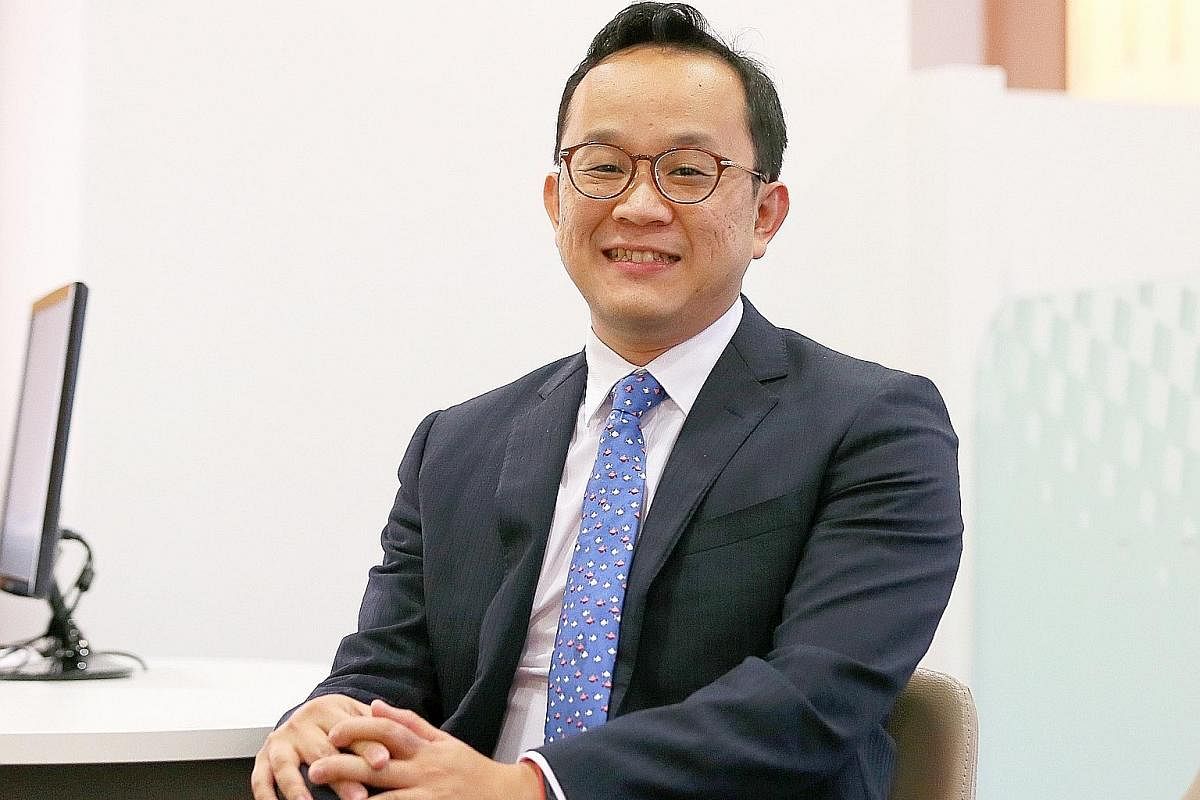Luke Lim: Managing director, PhillipCapital
Don't buy into fads or a slick sales pitch

Q What were the best and worst things (financially) that happened to you this year?
A I review my portfolio in totality and plan for long-term investments. Most of my portfolio has always been in equities.
In my portfolio, India, China, Vietnam, and PhillipCapital's own real estate investment trust (Reit) funds and exchange-traded fund (ETF) performed well, just to name a few. Markets have performed strongly this year.
I have invested through Phillip Smart portfolio, Philip Securities' own robo-advisory. This is my quickest and most hassle-free investment.
I was honestly surprised how easy it was done with a few clicks of a button. I wonder how far hassle-free investing can go in future with artificial intelligence and personal profiling. But maybe it will take the fun out of the sport.
What has always been in my portfolio? My Share Builders plan. It encourages my children and me to have disciplined investing habits, as portions of the monthly household income are set aside to invest in blue chips in the Singapore Exchange. Even if I hear bad news or if quarterly earnings do not hit expectations, I will continue this way of investing. Bad news always sells.
Excessive gloom and doom dampens the share price, allowing me to buy long-term growth at short-term depressed prices.
One PhillipCapital investment philosophy states: "Bad news can often be a good reason to invest."
Every year, as a personal goal, I study a new asset class. For this year, it is start-up investing. As part of my due diligence, besides analysing the financials, I believe in sizing up the founder, if he has what it takes to bring the firm to the next level.
Another PhillipCapital investment philosophy states: "We don't take investments at face value, we meet the business owners face-to-face."
In the listed space, my analysts and I meet the management of listed companies. I want to know if they can deliver on what they have planned. Is the company dynamic enough to adapt and solve problems that arise? Is it in a position to ride out inevitable economic downturns? What do they do to fund growth and where could the business model go wrong?
Another difference in start-up investing versus traditional investing is the binary nature of the payout. The start-up investors' payout is all or nothing. I feel a kind of different joy investing in start-ups... you will feel closer to the management, almost part of the company. You rejoice with the firm when it lands its first big contract.
I wish for my children to have this joy of investing and I introduced Disney stocks to them since they are such an avid consumers of Disney.
Q How has 2017 been for your industry?
A This year has been relatively strong for the stock market. At the close of trading on Friday, the Straits Times Index (STI) was 3,402.92, up about 18 per cent... the highest in the past five years.
Our economy is tethered to world trade. We can view the Singapore market like a warrant on global growth, and global economies are expanding at their fastest pace in five years. It is worth noting that from a longer-term perspective, the STI performance has been flat over the past 10 years. Maybe it is also an indication how undervalued we are.
Globally, the growth of ETF is very clear. According to research firm ETFGI, there is US$4.429 trillion (S$6 trillion as at October this year) in global ETF assets, compared with US$3.396 trillion at the end of last year. It grew by more than US$1 trillion in less than a year.
Adoption rate was twice as aggressive this year as compared with last year, which grew by only US$522 billion. Closer to home, the adoption of Singapore ETFs is growing with continual public education.
This year has seen modest growth in the wealth management segment on the back of positive gains in equity markets. The majority of fund flows are into Asian and Asia-Pacific unit trusts. Consumer appetites span across dividend/income-yielding equities such as Reits, while fixed-income/bonds still see strong demand for the year.
Despite speculation on rising interest rates and geopolitical uncertainty, in particular for short-duration as well as corporate bonds, this year also saw consumers diversifying into low-cost or investment tools such as ETFs (Lion-Phillip S-Reits successfully raised more than $100 million - the largest ETF in Singapore) in the last quarter of this year.
The wealth management industry also saw financial advisers being more holistic in providing advisory as well as discretionary services, to further preserve their value proposition to investors against a backdrop of emerging fintech/ robo-advisory market trends.
Q How do you see 2018 panning out?
A We think that the current growth globally is sustainable.
To keep global economies humming, we expect a healthy recovery in wage growth and corporate spending. Under such a scenario, we favour the banking and consumer sectors in Singapore.
Q Going into 2018, please offer some tips to retail investors.
A Our advice is not to buy into fads or a slick sales pitch but depend on sound investment rationales. Always own a balanced portfolio of yield and growth.
Lorna Tan
Join ST's Telegram channel and get the latest breaking news delivered to you.
A version of this article appeared in the print edition of The Sunday Times on December 31, 2017, with the headline Don't buy into fads or a slick sales pitch . Subscribe

